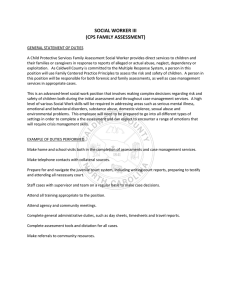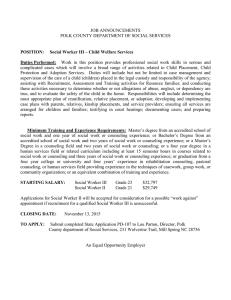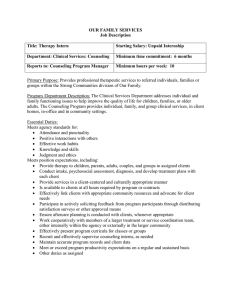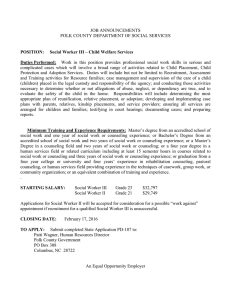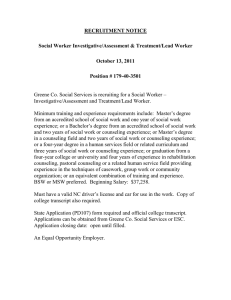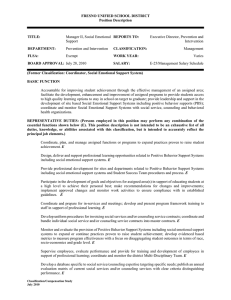Document 11177151
advertisement
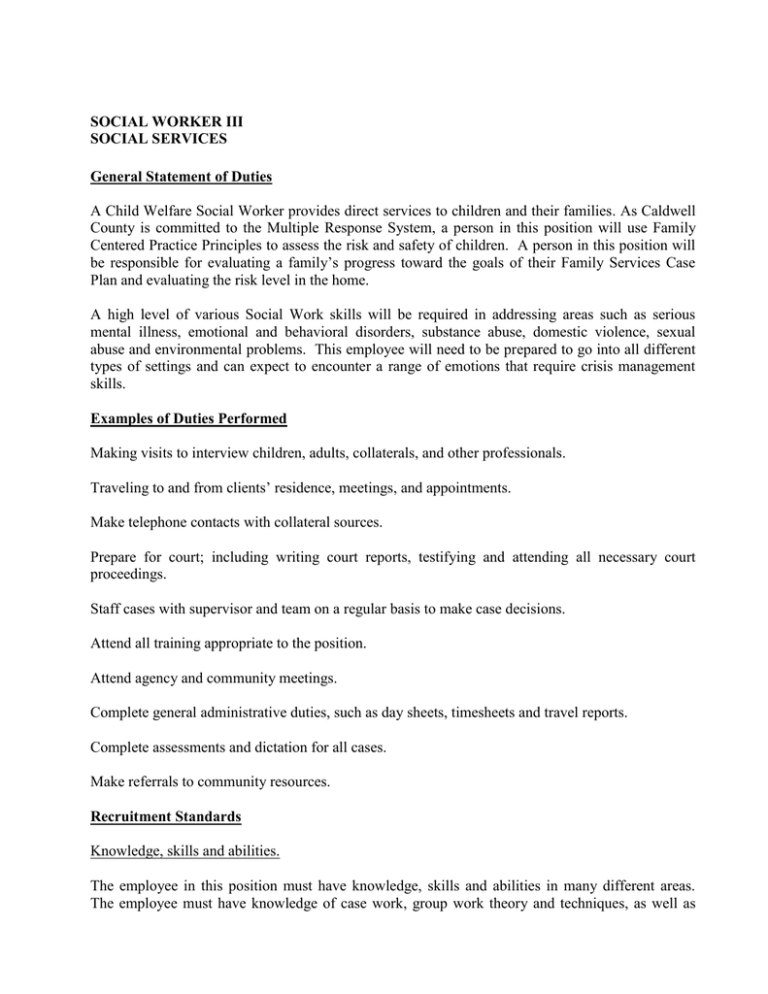
SOCIAL WORKER III SOCIAL SERVICES General Statement of Duties A Child Welfare Social Worker provides direct services to children and their families. As Caldwell County is committed to the Multiple Response System, a person in this position will use Family Centered Practice Principles to assess the risk and safety of children. A person in this position will be responsible for evaluating a family’s progress toward the goals of their Family Services Case Plan and evaluating the risk level in the home. A high level of various Social Work skills will be required in addressing areas such as serious mental illness, emotional and behavioral disorders, substance abuse, domestic violence, sexual abuse and environmental problems. This employee will need to be prepared to go into all different types of settings and can expect to encounter a range of emotions that require crisis management skills. Examples of Duties Performed Making visits to interview children, adults, collaterals, and other professionals. Traveling to and from clients’ residence, meetings, and appointments. Make telephone contacts with collateral sources. Prepare for court; including writing court reports, testifying and attending all necessary court proceedings. Staff cases with supervisor and team on a regular basis to make case decisions. Attend all training appropriate to the position. Attend agency and community meetings. Complete general administrative duties, such as day sheets, timesheets and travel reports. Complete assessments and dictation for all cases. Make referrals to community resources. Recruitment Standards Knowledge, skills and abilities. The employee in this position must have knowledge, skills and abilities in many different areas. The employee must have knowledge of case work, group work theory and techniques, as well as case planning and case management skills. The employee must have knowledge of community resources and services for the families that are served. This employee must have an understanding of how social and environmental factors affect clients and the choices they make. This employee must have knowledge of crisis intervention techniques, and the ability to apply those techniques in a variety of circumstances. It will also be important that this employee have an understanding of advocacy theory and technique as well as knowledge and understanding of local, state and federal laws in regards to social services, education and health services. The employee must demonstrate skills in the areas of listening to others with an open mind, information and fact assembling, written documentation of assessments and other reports; creating and maintaining professional relationships; observation, and interpreting verbal and non-verbal behaviors. This employee must also have skills in discussing sensitive emotional subjects in a nonthreatening supportive manner, as well as providing inter-organizational liaison services. The employee must also have the ability to speak and write clearly, teach others, participate in and lead group activities and function under stress. Minimum education and experience A Master’s degree from an accredited school of Social Work and one year of Social Work or counseling experience; or a bachelor’s degree from an accredited school of Social Work and two years of experience in social work or counseling experience; or a master’s degree in a human services field and two years of social work or counseling experience; or a four year degree in a human services field or related curriculum including at least 15 semester hours in courses related to social work or counseling and three years of social work or counseling experience; or graduation from a four-year college or university and four years of experience in rehabilitation counseling, pastoral counseling or a related human service field providing experience in the techniques of case work, group work, or community organization; or an equivalent combination of training and experience. This formal education would fully prepare an individual for entry into this position. There is no training or experience which could be substituted for formal education. There is no license or certification required by statute to perform the duties of this position.
